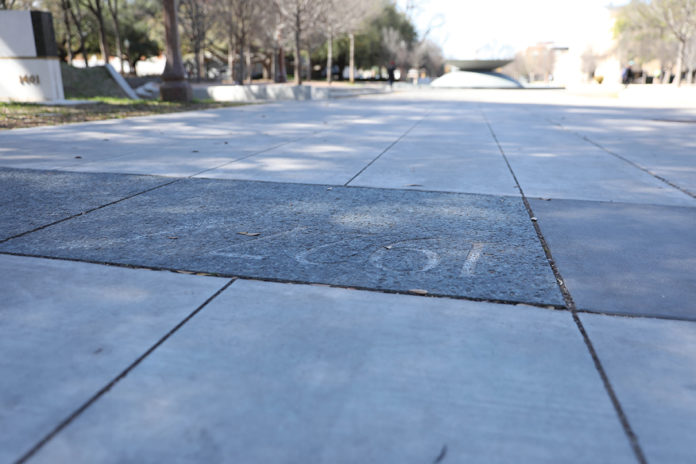
By Megan Rule | Staff Writer
The Baylor Line Foundation Town Hall on Governance Reform took matters into their own hands on Wednesday evening at the Texas Sports Hall of Fame to discuss the public’s discontentment with the leadership at Baylor.
“We’re here because we truly believe that Baylor can be a lot better,” said John Eddie Williams, Bears for Leadership Reform president, former Baylor football player and donor to McLane Stadium. “We think there’s a cloud hanging over the university, and we don’t have answers and we deserve answers.”
The Baylor Line Foundation issued an invitation to the Bears for Leadership Reform and the Baylor Board of Regents. There were five regents in attendance who did not answer questions or actively participate. The three Bears for Leadership Reform members on stage answering questions included Williams; Liza Firmin, Bears for Leadership Reform board member and 2006 Baylor alumna; Randy Ferguson, co-chair of the organization’s research and policy committee and former regent.
Although the board members did not actively participate, Ron Murff, Board of Regents Chairman, who was not in attendance, released a statement regarding interest in governance issues.
“We understand the need for continuous improvement,” Murff said in a statement. “That’s why, on Friday, the board will consider the adoption of a slate of previously publicized recommendations that address how the board does its business and what it shares with the public. We have already implemented one of the recommended changes – a new regents website that includes bios, meeting materials and a way to provide direct feedback to the board. As we continue to refine Baylor’s governance policies and procedures, I want to thank everyone who has contributed to this often-spirited conversation.”
A major focus of the town hall gathering was the lack of accountability within the Board of Regents, even though there have been improvements made recently. The Bears for Leadership Reform members on stage emphasized the necessity of having full transparency and knowing the facts of all that has happened with the sexual assault scandal Baylor has been dealing with. Audience members expressed their frustration to the silent board members listening and the Bears for Leadership Reform speakers.
“I’m disappointed that the board chairman did not come today,” said Linda Trotter, an alumna and audience member. “I think their silence speaks volumes, and if they came down from their ivory tower, they will realize the overwhelming distrust they have created among us. I think the debacle has been mishandled since beginning. What is being done to fix the image of Baylor? Why wasn’t information released nine months ago?”
The meeting also brought up the need for the board to have open meetings. Ferguson said Bears for Leadership Reform is interested in finding a happy medium between having no disclosure and full disclosure. He said there is a place for executive sessions and that should not be taken away, but there are also opportunities where the information should be open to the public. Williams emphasized that the public still does not know the facts of the scandal, such as how many sexual assaults occurred or how much the scandal cost the university.
“Regents have called me and said they do not feel they are on the board; they feel like they are advisory regents,” Williams said. “The real power lies in the clique of the executive committee. Executive committees are pretty common, but for whatever reason, ours has not functioned well. They have mismanaged the whole situation, adopted a culture of secrecy and kept the facts from the Baylor family.”
Williams said his organization is not lobbying for Art Briles, former head football coach, to come back to Baylor. Both Williams and Ferguson said that since the beginning, the organization has been lobbying for transparency, accountability and reform.
Firmin also said that alumni care just as much about Baylor as they did before the scandal and that the secrecy hurts. All three of the Bears for Leadership Reform members emphasized their love for the university, which is where their passion for this issue originates. With the recent news about Baylor facing accreditation issues and losing funding from Big 12, Williams said alumni feel the pain.
“The accreditation issue is important to all of us with a relationship to Baylor,” Williams said. “In my estimation, that’s because of a lack of leadership and governance. We should learn from other universities, the ones that ripped off the Band-Aid and exposed all the facts because that’s the way to start the healing, not the dribble-drabble of information every week that keeps the cloud over the university.”





